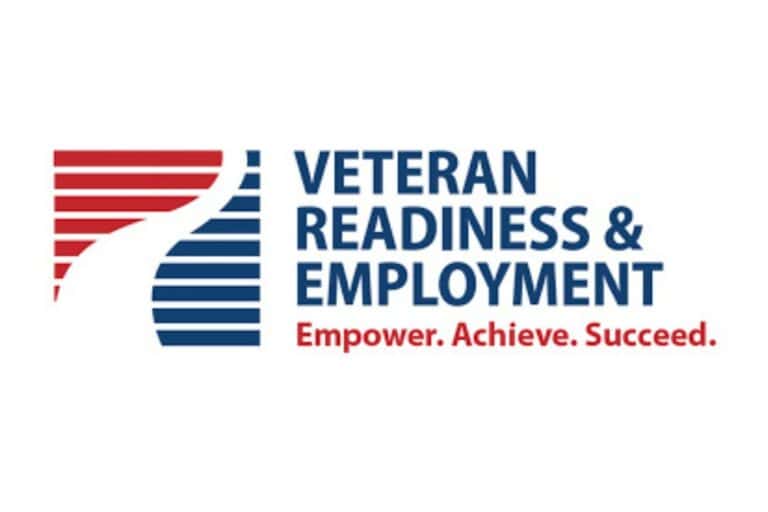New Rules: How To Appeal VA Vocational Rehabilitation Denials In 2019
The rules have changed. A new buffet of options for initiating appeals processes for VA Voc Rehab denials or lowball offers requires an updated approach.
In 2017, Congress passed new legislation mandating certain changes to the appeals process that was supposed to cut down on the appeals backlog. How did they solve the decades-long mystery of lengthy appeals?
Did they hire loads more appellate judges? No, but they hired a lot of paralegals.
Did they hire legions of adjudicators to process and review the claims more quickly? No, but they did hire some new counselors, but the program is still understaffed.
So, how would you cut down on a massive appeals backlog without hiring legions more employees to process those claims?
The agency sold Congress an appeals backlog fix it had been working on for years behind the scenes to limit veterans rights and the agency’s obligations when processing those appeals.
RELATED: Top 5 TDIU Misconceptions
VA created a review lanes system that severely restricts the manner in which a veteran can present new evidence and argument at the Regional Office after an initial decision.
VA also created limitations to its duty to assist that essentially stops once the agency makes its initial decision. Before, the agency had to assist the veteran in fully and fairly developing a claim at all stages including appeals.
Now, the veteran will be required to assess their legal options and secure supporting evidence after the initial denial on their own.
The new system is rather complex. VA is still trying to teach its employees about how the system works. VSOs are in the same boat. Even attorneys are still not clear about the implications of each lane review option.
Before I jump into the breakdown, I wanted to let you know that I created a new version of the agency’s M28R Manual for Voc Rehab. This is a searchable PDF of all the parts of the manual that otherwise are difficult to search and download.
I created a version with a table of contents that you can download for free from our Online Veterans Resource Center. Check it out as a free resource.
The Old Voc Rehab Appeals System
Let’s take a quick look at the old system so we can better understand how the new system is the same and different. The following four steps is a bit of a simplification of a person’s options at any point, but I wanted to boil it down to illustrate the new review process.
Step One: You would receive a written denial letter and hopefully read it. If you disagreed with the facts or rationale in the denial letter, you would then move to step two.
Step Two: You could then either request an Administrative Review or move right to a notice of disagreement to initiate the appellate process. The language required for either option was essentially the same, which created some confusion for counselors or veterans.
RELATED: Can I Lose My 100% If I Use Voc Rehab To Get A Job?
For the notice of disagreement, you needed to provide a written letter to the agency, signed, that tells the agency you disagree with a decision and that you wanted to contest that decision.
The letter could be written on a VA form or toilet paper.
Step Three: You would then receive a Statement of the Case from the Regional Office, review the document, and submit the VA Form 9 if you wanted to perfect your appeal.
Step Four: You would submit your argument to the Board of Veterans Appeals that could include a hearing if you wanted.
During any of the stages, you could generally submit new and relevant evidence that the agency was required to consider. This makes sense because disability ratings frequently change, as do the circumstances of a veteran’s economic situation that may require a change in entitlement to VA Voc Rehab benefits.
New VA Voc Rehab Appeals
The new system, which is the same for disability compensation appeals, has a buffet of options, but you cannot mix your vegetables.
What do I mean about the vegetable metaphor?
At any stage of the appellate process before, at least generally, a veteran could submit new and relevant evidence for consideration. You cannot do that now.
The new system provides options, but the options are mutually exclusive, somewhat. Here is what I mean.
RELATED: VA Vocational Rehabilitation To Hire More Counselors
The new system provides around six options, or lanes, for an appellate review of your claim. I use the term “appellate” loosely to simply describe a process wherein your claim receives additional looks from agency officials of varying degrees.
Each of these options requires its own unique form submitted within the first year after the denial to initiate the appellate review process.
- Option 1: Higher Level Review
- Option 2: Supplemental Claim
- Option 3: Formal Appeal
Higher Level Review – Voc Rehab – 90 Days
For Option 1, the Higher Level Review (HLR), you can request a review of the decision by the VR&E Officer, his or her assistant, or a supervisor at your Regional Office.
The review is supposed to be de novo meaning the official is not bound by a previous finding. The counselor is required to follow 38 CFR § 21.420 including thoroughly explaining the bases for any decision as well as discussing positive and negative evidence supporting the claim.
Previously, VRE was horrible at addressing favorable decision when the counselor decided, sometime arbitrarily, to maintain a denial without weighing favorable evidence.
Similar To Administrative Review
The HLR process is very similar to the old Administrative Review request except for four primary factors. There are others, but at this time, the following four changes seem like the most obvious and impactful related to Voc Rehab.
- You cannot submit new evidence during the HLR process.
- You must submit the required form, VA Form 20-0996.
- You can request that the review be performed by the VR&E office’s sister station.
- The review is performed by field staff and not Central Office.
Informal Conference
During this period, you can request an informal conference with the senior official to discuss your concerns about the denial. The purpose of the conference is to identify errors of law or fact in the earlier decision.
Now, if you have new evidence that supports your contention that an error of fact occurred, how can you submit that here? At the present, it does not appear VR&E will consider that evidence at this stage, so I am not clear how the veteran will be allowed to prove a factual error other than simply asserting the error.
VA Form 20-0966
The veteran will need to assert their desire for the informal conference on the VA Form 20-0966 when the document is submitted.
The decision should be completed within 90 days. At the end of that process, you have a short period of time to initiate the formal appeal or seek a supplemental claim.
Possible HLR Outcomes
The decision will be returned with the following outcomes. The original decision could be upheld. If that happens, you will have the option to either move forward with the formal appeal or to use a supplemental claim review to prove your case.
The original decision could be overturned.
Or, the reviewer could identify a duty to assist error or return the claim to the counselor for further development. The process requires 30 days to get sorted out. Generally, the vocational counselor will need to secure the new information or re-adjudicate the claim swiftly.
Supplemental Claim – Voc Rehab – 125 Days
Here, you will submit a VA Form 20-0995 to the Regional Office. The agency will have 125 days to review the evidence prior to submitting their decision. The original decision will either be upheld or overturned.
What It’s For
This option makes sense if you have new evidence supporting your claim such as unsuccessful job applications or a new disability determination from the agency showing you have a serious employment handicap.
A letter from your psychologist or doctor confirming that a program of vocational services is feasible may also be another type of evidence you would want to submit for review.
You can submit evidence here, but you cannot submit evidence at HLR. You also cannot opt for a supplemental claim while an HLR is underway.
It is also important to remember you can always submit new evidence to the Board for consideration if you decide to bypass this option. If you are in a hurry for a decision, it might make sense to move forward with a formal appeal with the new evidence to force the issue more quickly – – assuming the appeals backlog gets addressed with these new rules.
Board Of Veterans Appeals – Voc Rehab
Once you receive a denial, you can also select a formal appeal by submitting a notice of disagreement. But, this NOD is not your grandfather’s NOD. No sir.
You will need to submit a VA Form 10182 directly to the Board instead of to the Regional Office. You will then need to submit which version of a formal appeal you would like:
- A direct review of only the existing evidence/argument in the record for speedy decisions;
- Evidence submission – meaning a review of new evidence and argument submitted in writing for adjudications that are faster than a hearing;
- A hearing where you can submit new evidence and argument.
I have no idea how long these formal appeals will take. My personal appeal took 4 years from the date of certification to the Board until I received the decision.
Hopefully, the new system will speed up the process.
VR&E is no longer involved after a veteran initiates the appeals process in this lane. The Board develops the Statement of the Case instead of the vocational counselor who made the denial decision.
Outcomes at this stage are similar to the HLR. The Board judge will uphold the original decision, overturn the original decision, or remand the case to the Regional Office for additional development or reconsideration.
Last Change – Effective Dates
So, the following is more relevant for disability claims but may come in handy for veterans who believe they are entitled to retroactive induction benefits. Retro is basically reimbursement of out of pocket costs you incurred while prosecuting your appeal that resulted from VR&E wrongly denying your claim.
According to the agency, you have one year from the date you receive the decision of any review lane to pursue a different lane without losing the connection with the original filing date of the original claim.
So long as you continuously pursue the appeal in a timely manner, ie seek the next review within one year of any denial, you can continue the claim.
One VR&E Officer suggested a veteran can keep their claim alive indefinitely so long as they seek a different lane of review within one year of any adverse decision on review.
US Court Of Appeals For Veterans Claims
Once the Board denies your claim, you will have 120 days from the date of notification of the decision to file an appeal with the Court.
Next Steps
Everyone including VA is learning how the new regulations will work in practice versus the theory of the reforms. Be sure to check with your local attorney or VSO when making decisions about which options are best for you.
The new system creates a variety of new options and limitations of your rights at every turn, so be sure you understand the implications of your possible decisions before you submit a form to the agency.
I plan to add an appeals matrix to my Voc Rehab Survival Guide course in the short term. Check it out. It’s a low-cost solution that has helped thousands of veterans get informed about Voc Rehab and their rights.





I have been waiting three years to have my wife placed on my VA disability award and she is still not put on . Even though I have given the VA all the information required. I had no problem getting her on my Army retirement but three years for the VA to get off their asses to just place my wife on my award is really Nuts. Next stem Washington to see what the he’ll is going on. What a pain in the was the VA has and is too get anything done.
Agree.
I think we need to file a class action “breach of contract” through a district court if possible in order to get a trier of fact jury. The Courts are giving the VA all the time they take. Delay, deny, wait until they die, is the VA Benefits Division modus operandi. I don’t think Section 4 of the 14th Amendment even modified by the earlier “Bill of Rights” exceptions for the military intends the, “Delay, Deny, Wait Until They Die” VA Benefits modus operandi. (quoting unknown vet’s billboard)
Elements of my claim are 45 years old. The youngest oustanding issues not addressed are 32 years old. LOL The best I’ve had is about 5 years.
The VA needs to move to a system similar to but better than the SSA. There needs to be a back on automatically if your effort fails and an encouragement to try by not taking everything away when you are trying to get started.
When I got SSDI in 1992, if I earned over $500.00 in any month my SSDI would be taken away and it would take 5 years or more to get it back. SSA has finally recognized that was counterproductive and made it easier for marginally disabled to seek employment they can handle and employers who will take them. The VA is way behind in this.
Lem, I agree with you again. I believe we are floating on the same page everywhere. Thanks. Yep, VA Vocational Rehabilitation Counselors do not even follow their Code of Ethics. Remember, they have their certifications. Almost the same as a nurse who has a nursing license should have the nursing license taken away from exploiting her patients. Nurse getting involve with patient’s husband that results in divorce between her patient and the husband. Nurse soon marries husband after divorce. All these people who have certifications and license should lose them if they cannot honor professionalism and ethics. I will further share about Voc Rehab as to the why I am bringing this up. Return to speak about.
Listening!
Is there a grandfathers clause here i.e. if a claim was filed before the new ones, will they be affected?
Best of luck, and God speed with Ben Krause.? I was told in the beginning of my VR&E they be would agree to only an A/A, that being 10 more units, I became homeless with my autistic son, it was a war. I have since found us a place to live, but now I’m stressed out and, I’ve watched my life go to hell, daily headaches, spine pain, ? not sure about much these days.??
This breaks my heart really. Every war has dragged on and on, and Veterans and their families have not been treated any better. Senator Johnny Isakson disappoints over and over. He is very busy, it would seem. He stated in a latest email, “On Wednesday, I chaired a Senate Committee on Veterans’ Affairs hearing on the ongoing implementation of the VA MISSION Act, which I championed and was signed into law last year to improve access to care for our veterans. I called on the U.S. Department of Veterans (VA) to do everything in its power to fundamentally change the service they deliver to veterans for the better, and our committee is eager to assist in the implementation process to ensure the reformed community care program is a success from day one. You can watch my opening remarks here and my question for VA staff here.”
Can someone please tell me what he has actually done?
Thank God for Mr. Krause, is all I have to say.
I can’t stand the way I hear everyone is being treated. It is an attrocity of infinite proportions.
I hate to sound all 1960’s, but what if they held a war and nobody came?
I have been waiting 2 years to get my paperwork to my Local Va Office for Voc Rehab. And just yesterday, they tell me they can’t do anything for me even though it took them 2 years to just get BACK TO ME. This was AFTER I kept trying to file a grievance form why I could not get my paperwork in more than a year after making 3 different requests. I requested a transfer in 2017. It’s now 2019. Think about that.
Now I have to wait another MONTH? And then was told that they can’t do anything for me. Hello! I was waiting for the VA to get me started up here at this office in Oregon. I have chosen to hire Mr Krause after realizing that I was told that I have a “Reputation” in this office.
The VA has even told me I have to wait even longer for a determination on my PTSD, traumatic brain injury, and so much more. I’m thankful for the DAV here in Oregon. But let me tell you, it’s been hell trying to get things done.
Even before that, they kept telling me I owed them money that I have a document at the VA that says I paid them.
Now I have filed this claim back in 2008, and I was told they only go back 12 Months? WHat is up with that?
Let me tell ya, I am no longer going to go in without a lawyer. It’s just not feasible THe money you pay for that representation, however you pay for it is worth it.
At least Mr. Krause is not going to screw you over like Family court lawyers. And Honestly, I I wish welfare worked like the VA does. 🙂
I’m with you on the welfare part. No illegal would put up with it and government representatives are just clambering to get them entitlements from out tax dollars
Yep, agree. Government is too big. It exists to serve and protect itself. But somehow, the government seems to let the illegal immigrants seap into the bureaucracy to such a degree that results in the red carpet being rolled out to them. Wine and dine.